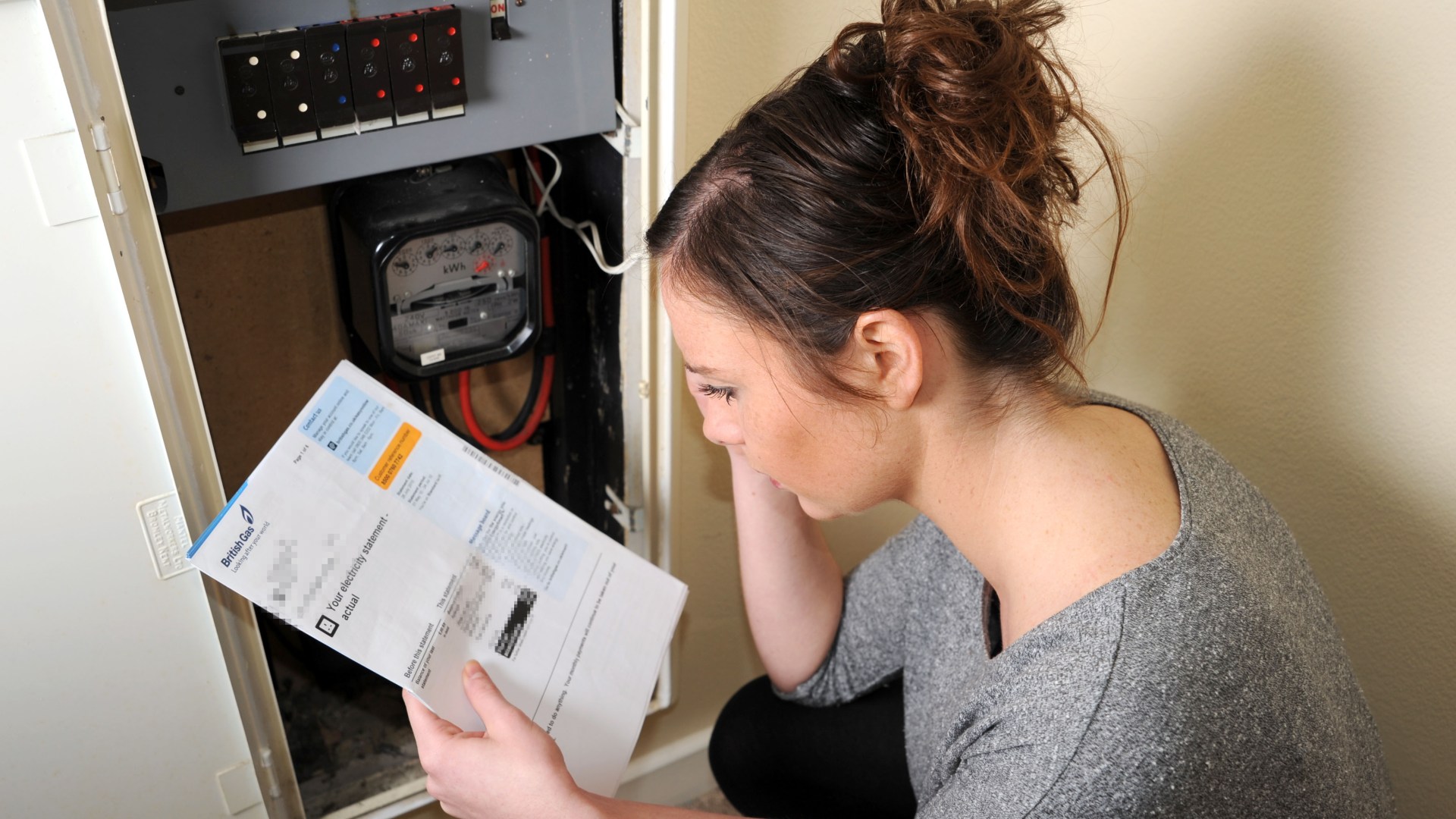Money
Supermarket own-brand baked beans named better than Heinz and Branston – it’s not Tesco or Lidl

A SUPERMARKET’s own-label baked beans have beaten family-favourite brands including Heinz and Branston in a taste test.
The favourite cupboard staple was ranked top by a team of 66 testers, put together by consumer experts Which?.
The panel ranked 10 variations of baked beans from top supermarkets including Aldi, Asda, Co-op, Morrisons, Tesco, Sainsbury’s, as well brands Branston and Heinz.
Each was given a score out of 100 based on 50% flavour, 20% appearance, 20% aroma and 10% texture.
In the final scores, there was less than 10% between the winner and lowest scorer.
However, the top spot was taken by Aldi Bramwell’s Baked Beans, with an overall score of 76%.
The panel thought the beans looked good, had an appealing aroma, and three-quarters said the strength of flavour was perfect.
Just behind with a score of 75% was Branstons Baked Beans.
The panel said these beans looked appetising and the strength of flavour satisfied seven 70% tasters. The level of sweetness was enjoyed by a similar number of tasters.
In third and fourth spots were the Co-Op’s Baked Beans and Asda’s Baked Beans, with scores of 74% and 73%, respectively.
Heinz Beanz was voted into fifth place with an overall score of 72%.
The panel thought the big brand beans looked good and had a pleasing texture, but the aroma was less well liked than others, and just over a third (35%) thought the sauce was too thin.
If you get through two tins per week, switching from Heinz beans to Aldi’s offering could save you over £100 per year, as a year’s supply of Aldi baked beans comes in at £42.64 versus £145.60 for Heinz – a £103 saving.
The overall scores were close, but there were bigger variations on individual parts of the scoring.
For example, M&S Baked Beans had a score of 67%, but less than half (45%) were satisfied with the strength of flavour, while a third wanted them to be sweeter.
Aldi and Branston have now both earned Which?’s Best Buy endorsement and Aldi also has the Great Value backing too.
Lidl‘s own-label items are usually included on taste tests, but the supermarket told Which? there is variation in the product recipe due to dual supply, so it wasn’t tested this time.
Brand
Score
Aldi Bramwell’s Baked Beans
76%
Branstons Baked Beans
75%
Co-op Baked Beans in Tomato Sauce
74%
Asda Baked Beans in a Rich Tomato Sauce
73%
Heinz Beanz
72%
Waitrose Essential Baked Beans in Tomato Sauce
72%
Sainsbury’s Baked Beans in Tasty Tomato Sauce
71%
Tesco Baked Beans in Tomato Sauce
70%
Morrisons Baked Beans in Tomato Sauce
68%
M&S Baked Beans in a Rich Tomato Sauce
67%
Natalie Hitchins, Which? head of home products and services, said: “Baked beans are a staple for many households and our results show you don’t have to pay a premium for the best taste.
“Choosing supermarket own-label groceries is not only a great way to save money, but our tests prove that you can end up with a better tasting product and can save over £100 a year by making the switch.”
The Sun team has recently taste tested tinned pasta and boxed wines.
How to save on your supermarket shop
THERE are plenty of ways to save on your grocery shop.
You can look out for yellow or red stickers on products, which show when they’ve been reduced.
If the food is fresh, you’ll have to eat it quickly or freeze it for another time.
Making a list should also save you money, as you’ll be less likely to make any rash purchases when you get to the supermarket.
Going own brand can be one easy way to save hundreds of pounds a year on your food bills too.
This means ditching “finest” or “luxury” products and instead going for “own” or value” type of lines.
Plenty of supermarkets run wonky veg and fruit schemes where you can get cheap prices if they’re misshapen or imperfect.
For example, Lidl runs its Waste Not scheme, offering boxes of 5kg of fruit and vegetables for just £1.50.
If you’re on a low income and a parent, you may be able to get up to £442 a year in Healthy Start vouchers to use at the supermarket too.
Plus, many councils offer supermarket vouchers as part of the Household Support Fund.
Money
How to qualify for winter fuel payment if your income is higher than £218 a week

MILLIONS of households are no longer eligible for this year’s winter fuel payments.
However, hundreds of thousands of households could secure the cash if they launch a claim for pension credit before the December deadline.
In the past, winter fuel payments worth up to £300 were available to everyone aged 66 and above.
However, after Labour’s election victory, Chancellor Rachel Reeves introduced cuts limiting winter fuel payment eligibility to those on pension credit or other means-tested benefits.
To be eligible for this year’s payment, you must have an active claim for the benefits mentioned above during the “qualifying week,” which runs from 16 to 22 September (this week).
Most households automatically receive the winter fuel payment, including those on pension credit.
However, 800,000 households are thought to be missing out on pension credit, which unlocks their eligibility for this year’s winter fuel payment.
As new claims for pension credit can be backdated by up to three months, you can still apply now and qualify for this year’s winter fuel payment.
The absolute deadline to claim the benefit and qualify is December 21.
Pension credit tops up your weekly income to £218.15 if you are single or to £332.95 if you have a partner.
This is known as “guarantee credit”.
If your income is lower than this, you’re very likely to be eligible for the benefit.
What if my income is higher?
If your income is slightly higher than the following rates, you might still be eligible for pension credit:
- Single: £218 a week
- Couple: £333 a week
For example, single applicants might still be eligible if their weekly income is under £235.
And those in couples may still get it if they earn under £350 a week.
Those with disabilities, who care for someone, or who get help with their housing costs could still qualify.
For example, if you claim attendance allowance, the threshold at which you can qualify for pension credit rises by £82 a week.
The benefit is open to people over state pension age who need help with personal care due to a physical or mental disability.
The income you receive through attendance allowance is not counted towards your eligibility for pension credit.
ATTENDANCE ALLOWANCE
ATTENDANCE allowance offers cash support to those over the state pension age who need help with personal care due to a physical or mental disability.
It’s paid at two different rates and how much you get depends on the level of care that you need because of your disability.
Those on the lower rate receive £72.65 per week, while those with more serious illnesses can get £108.55 per week.
This works out as £434 a month or £5,208 a year.
It’s thought that up to 1.1million state pensioners are missing out on this support.
To apply, you’ll need to download the attendance allowance claims form by visiting gov.uk/attendance-allowance/how-to-claim.
If you claim carer’s allowance, the threshold at which you can qualify for pension credit also rises by £46 a week.
Those who receive help with their housing costs could also still be eligible for pension credit even if they breach the earnings thresholds.
For example, you could get an extra amount to cover your housing costs, such as:
- Ground rent if your property is a leasehold
- Some service charges
- Charges for tents and site rents
The exact amount you could get depends on your housing costs.
However, if you’re found to be eligible for pension credit, it could unlock your ability to qualify for the following extra support:
- Council tax reduction
- Housing benefit if you rent the property you live in
- Support for mortgage interest if you own the property you live in
What about savings?
If you have £10,000 or less in savings and investments, this will not affect your eligibility for pension credit.
If you have more than £10,000, every £500 over £10,000 counts as £1 income a week.
For example, if you have £11,000 in savings, this counts as £2 income a week.
APPLY FOR PENSION CREDIT
PENSION credit tops up your weekly income to £218.15 if you are single or to £332.95 if you have a partner.
This is known as “guarantee credit”.
If your income is lower than this, you’re very likely to be eligible for the benefit.
However, if your income is slightly higher, you might still be eligible for pension credit if you have a disability, you care for someone, you have savings or you have housing costs.
Pension credit opens the door to other support, including housing benefits, cost of living payments, council tax reductions, the winter fuel payment and the Warm Home Discount.
You can start your application up to four months before you reach state pension age.
You can apply any time after you reach state pension age but your application can only be backdated by three months.
This means you can get up to three months of pension credit in your first payment if you were eligible during that time.
To apply, you’ll need the following information about you and your partner if you have one:
- National Insurance number
- Information about any income, savings and investments you have
- Information about your income, savings and investments on the date you want to backdate your application to
You’ll also need your bank account details. Depending on how you apply, you may also be asked for your bank or building society name, sort code and account number.
Applications can be made online by visiting gov.uk/pension-credit/how-to-claim.
If you’d prefer to apply over the phone, you can do so by calling the pension credit claim line on 0800 99 1234.
Money
Martin Lewis explains how to stop your energy bill rising next week – and what will happen to prices in 2025

MARTIN Lewis has revealed how you can stop your energy bills from rising next week and whether they will go up or down in 2025.
The consumer champion featured as a co-host on ITV‘s Good Morning Britain yesterday morning.
And the MoneySavingExpert.com website founder used his platform to reveal how households can save money on their energy bills from October 1 when the new price comes into effect.
The new price cap, which affects about 28million households, will see the average family’s bill rise to £1,717 from £1,568 a year – a £149 hike.
But, Martin said, you can beat the hike by locking in a fixed-rate energy deal which is lower than the price cap.
Responding to a viewer question on whether they should lock in a fixed tariff with Octopus Energy for 15 months, he replied that it could save them money.
Read more on Martin Lewis
He explained this is because wholesale energy costs, which is what energy firms are charged, are falling so there are fixed deals on the market cheaper than the price cap, which was decided in August.
“Energy is going up (in price), it’s not going down,” he said.
“It’s going up on the first of October. It’s likely to come down a tiny bit in January but still be a lot more than it is now.
He added: “Bizarrely, energy prices are going up if you’re on the price cap, but the cheapest rates available if you are going to switch (and fix) are coming down.”
The consumer champion went on to reveal some of the best fixed deals currently on the market will be up to 9.4% cheaper than the new price cap coming into effect on October 1.
The advice came as he revealed what is predicted to happen to energy prices from 2025 based on wholesale costs.
The consumer champion said while energy bills are expected to rise by around 10% from next week, they will fall by 2% in January then a further 1% in April, based on predictions from EDF.
Bear in mind though that these are just predictions for what will happen to energy prices and aren’t guaranteed.
How to get help with energy bills
Locking in a fixed-rate energy deal ahead of prices rising next week is one way to cut the cost of energy.
There is a host of help on offer to cover costs over the colder months, including the Winter Fuel Payment and Warm Home Discount.
Both schemes are means-tested though, which means you will have to be on certain benefits to qualify.
But, in total, they are worth up to £450 which could massively help.
If you are struggling to cover the cost of your energy bills or have fallen into arrears, you might be able to get a free grant.
British Gas, ScottishPower, EDF and Utilita all have schemes offering customers up to £2,000.
You also might be eligible for help with energy bills via the Household Support Fund (HSF) which is worth £421million.
The new round will run from October until March next year, but many councils are yet to announce what type of help will be on offer.
However, in previous rounds, local authorities have given households in need energy vouchers, supermarket vouchers and free cash.
Contact your local council, which you can find using the Government’s online council locator tool, to find out what help is on offer.
It’s worth checking if your energy firm has any targeted support on offer based on your circumstances too.
For example, Octopus Energy is handing out 20,000 electric blankets to customers in need this winter.
When does the price cap change?
OFGEM reviews the cap on unit rates for those on the default tariff every three months.
This means the energy price cap can move up or down at four different points in the year.
Price cap rates are updated on the following dates:
- January 1
- April 1
- July 1
- October 1
Do you have a money problem that needs sorting? Get in touch by emailing money-sm@news.co.uk.
Plus, you can join our Sun Money Chats and Tips Facebook group to share your tips and stories
Money
How ‘anti-tax’ advice is failing clients – and society

 As financial planners, much of our time is spent explaining the different tax implications of decisions clients may make, alongside changing allowances, and putting together effective financial jigsaws to meet their objectives.
As financial planners, much of our time is spent explaining the different tax implications of decisions clients may make, alongside changing allowances, and putting together effective financial jigsaws to meet their objectives.
We all want to make sensible use of tax-free allowances, such as Isas and pensions, while controlling the capital gains tax we pay and, ultimately, the inheritance tax our beneficiaries may pay.
However, while many seek reassurance they’ll have enough money for the rest of their lives, there are some who already know they will. These people may have a different relationship with tax.
I’m afraid the findings are incriminating – never has there been such a clear bias within an industry
There is a movement developing to address systemic inequality, focusing on who holds wealth, how it was accumulated and how it is used.
I’ve recently been introduced to some fascinating organisations leading this charge, including Patriotic Millionaires UK and the Good Ancestor Movement, from which the Progressive Advisors’ Movement has developed.
As a financial planner specialising in what our firm calls ‘thoughtful investment’, not only was I personally interested in the work of these organisations, but I also believed many of our ethically-minded clients would engage with the themes.
The first major piece of work the Progressive Advisors’ Movement has undertaken is an analysis of how our financial services industry in the UK approaches tax.
Some clients see paying tax as a civic duty and a way to give back to the society that helped them succeed
The ‘language of tax’ research covers the likes of tax planners, accountants, financial advisers and investment management firms, considering these questions:
- How do we talk about tax?
- What do our websites say?
- How do we sell our services?
I’m afraid the findings are incriminating – never has there been such a clear bias within an industry.
Many talk about tax as something scary and complex that only professional advisers can navigate, which can disempower clients and potentially make them overly reliant on their advisers.
Most firms in this sector talk about tax as something to be avoided, even if it means tangling up clients’ affairs in complicated trusts or other arrangements. There’s a tendency for advisers to assume clients always want to maximise tax savings, regardless of the resulting complexity.
But not all clients want this.
More and more people – who have more than they need – are content paying tax and, in fact, prefer the simplicity of avoiding complicated family trusts and estate planning.
We all have a part to play in challenging industry assumptions, providing clients with what they want rather than what we assume they want
As advisers, our job is to listen to clients and provide services that align with both their financial and ethical goals.
This report challenges decades-old industry assumptions, reminding us that some clients – particularly those with significant wealth – see paying tax as a civic duty and a way to give back to the society that helped them succeed.
The Progressive Advisors’ Movement has helped me see the payment of tax has democratic outcomes in a way personal philanthropy does not.
Often, high-net-worth clients will also give money away. However, philanthropy is less democratic than paying tax, as the donor decides what to support and to what extent, thereby retaining the power and the recognition and status along the way (it may not be surprising to know many of our lovely clients prefer to give anonymously).
By seeking to increase the tax you pay, you are, in effect, supporting the wider civil structures that prop up society.
There is a movement developing to address systemic inequality, focusing on who holds wealth, how it was accumulated and how it is used
The Progressive Advisors’ Movement is working to drive cultural change within the professional services industry, and I’m proud to be part of a group dedicated to thinking about these issues. I am also honoured to have clients who consider not just themselves but also the broader impact their wealth has on society.
Advisers must reconsider how we approach the thorny issue of tax planning with clients, both individually and at a firm level.
This doesn’t need to be a value judgement but a reminder that a client’s objectives should be led by the client, not the adviser. We all have a part to play in challenging industry assumptions, providing clients with what they want rather than what we assume they want and supporting the growth of a more tax proud culture in the UK.
Olivia Bowen is partner, client advice, at Castlefield
Money
All the money changes coming in October including new energy price cap and mobile phone roaming rules

AS we head into October and the temperature drops, many of us are thinking about putting the heating on and preparing for winter.
But several key financial changes this month, including higher energy bills thanks to a new energy price cap, mean we need to keep an eye on our cash, too.
The next 31 days are very busy from a monetary perspective, with everything from the first Labour government’s Budget – where it will announce new money and tax policies – to the last days to take advantage of supermarket Christmas savings schemes.
Fortunately, we’ve rounded up all the important deadlines you need to be aware of, as well as anything you need to do.
October 1 – Energy price cap
Every three months, energy regulator Ofgem sets its new price cap. This is the maximum that people on variable tariffs can be charged per unit of energy.
The next cap kicks in on October 1.
From that date until the end of the year, a typical household using both electricity and gas and paying by direct debit will see their energy costs rise by £149 per annum.
This is a 10% increase, which means an extra £12 added to the average monthly bill.
However, the new cap is 6% cheaper than this time last year, saving you about £117 compared to last year’s price of £1,834.
Your bill will vary based on how much energy you use, where you live, and what kind of meter you have.
So, while the new headline cap is around £1,717, this can vary depending on whether you use more or less energy than a typical household.
You can find more details about the new price cap here, including costs per unit of energy and when to take a meter reading.
October 1 – Ofcom new rules for phone providers
Starting from October 1, new rules from the communications regulator, Ofgem, will help mobile phone users avoid surprise charges when using their phones abroad.
The new rules require mobile providers to inform customers when they start roaming and to protect them from accidental roaming, which happens when you unintentionally connect to another country’s network while travelling near a border.
They will also need tell you about spending caps and direct you to free information about roaming costs in your current location.
You can read more about the legislation and what it means for you in our round up here.
October 5 – deadline to register for self-assessment
If you need to do a self-assessment tax return for the first time this year, you must register by October 5.
Reasons you might need to self-assess include if you’ve become self-employed, if your side hustle earned you more than £1,000 in a tax year, if you need to pay the high-income child benefit charge, if you’ve made money from savings and investments, or if you’ve started earning more than £150,000.
If any of these things happened to you between April 6, 2023 and April 5, 2024, then you must register.
Failure to do so may mean you cannot file your return and pay on time, which could lead to a hefty fine.
Find out exactly what you need to do and how to register in our guide. Applying is quick and easy using the Government’s online tool.
October 7 – Fraud APP rules
Starting from this month, people who fall victim to Authorised Push Payment (APP) scams will be able to get as much as £415,000 back from their banks.
The Payment Systems Regulator (PSR) is now requiring financial institutions to pay back scam victims, which is a change from the previous system where reimbursement was voluntary.
The rule change has also put more onus on the banks that receive APP fraud money as they will be responsible for repaying half.
Victims need to let their banks know about the scam within 13 months and provide any information the bank needs to investigate.
Learn more about the new rules here.
October 16 – inflation figures announced
On October 16, we find out the inflation rate for September, which is very important for a two key reasons.
First, it helps decide how much the State Pension will go up by from April next year as part of the Government’s triple-lock promise.
The triple lock ensures the State Pension rises each year in line with inflation, average earnings of 2.5% – whichever is highest.
Second, it affects how much benefits, like Universal Credit, and Tax Credits for working age people, will increase by from next year.
October 4 – Winter Fuel Payment phone applications open
From this date, the Winter Fuel Payment Centre will accept phone claims from people who are eligible to receive the payment for the first time.
This year, only people who claim Pension Credit and certain other benefits will be eligible, so check if you could benefit.
You can call the Winter Fuel Payment Centre on 0800 731 0160.
October 16 – Last day for Tesco Christmas Clubcard Saver
Tesco’s Clubcard Christmas Saver lets customers save money and earn bonuses.
How much you get depends on what you save, and to get the maximum amount of £12 you need to stash away at least £200.
In November, customers will get vouchers matching the value of the money saved and any bonuses received.
These can then be used during the Christmas season, either in stores, online, or through the Tesco Grocery & Clubcard app.
You can also use them for fuel at Tesco and Esso stations with Tesco Express.
The last day to add qualifying savings is October 17, 2024.
The Clubcard and top-up vouchers are good for 2 years, while the bonus vouchers are good for 3 months.
Find out more about supermarket saver schemes and their pitfalls here.
5 Money-saving tips for autumn/winter
1. Draught-proof your home
It takes time and money to heat up your home, so it’s important that you do as much as you can to keep in the warmth. Close your doors and windows, and fill any gaps with a draught excluder.
2. Dial down your thermostat
According to Energy UK, turning down your thermostat by just one degree Celsius could cut your heating bill by up to 10%, and save you around £85 per year. Plus, if you don’t have a thermostat, installing one could save up to £70 per year!
3. Move furniture around
Make sure not big, bulky furniture like sofas are blocking radiators.
4. Wash clothes on a lower temp and add an extra spin
Unless it’s bedding, towels or really dirty items, dial down the temperature to 20 or 30 degrees, and do a double spin to remove excess water.
5. Heat the person not the home
There’s not point heating up a room that no one is sitting in, so be mindful about which radiators are on.
October 30 – Budget (also called Autumn Statement)
On October 30, Rachel Reeves, the Chancellor of the Exchequer, will give her first Budget.
This is when the government’s shares updates on its tax and spending plans – which could impact your finances.
At this time of year it would normally be called an Autumn Statement, but as it is the new government’s first, it is being called a formal Budget.
Ms Reeves has already warned that there will be tax rises, which experts speculate could include changes to inheritance tax, pensions rules, capital gains tax, and even fuel duty.
This is to plug a £22billion “black hole” in the country’s finances, Ms Reeves has said.
You can read more about what changes are expected here.
October 31 – deadline for paper tax returns
Around half a million people still fill in a paper tax return each year. If you’re one of them, you need to hand it in by October 31.
If you want to do an online return instead you have until January 31.
Missing both deadlines means a fine, and if you don’t pay up on time, you’ll have to pay interest and further fines.
October 31 – Last chance to buy Morrisons Christmas saver stamps
The Morrisons Christmas saver scheme gives you a bonus for the money you save.
The maximum bonus is £6 if you save £197 through the programme.
To earn the extra cash, you need to make sure your savings are in your account by October 31.
Christmas Saver stamps bought after that date will count towards your savings for Christmas 2025.
Once you’ve saved your money and received your bonus, you’ll get a voucher that you can use to shop in-store or online.
Read more about the downfalls of saver schemes and how to avoid them here.
Do you have a money problem that needs sorting? Get in touch by emailing money-sm@news.co.uk.
Plus, you can join our Sun Money Chats and Tips Facebook group to share your tips and stories
Money
Millions of energy customers have just DAYS to submit a meter reading or risk higher bills

THE clock is ticking for millions of households to submit a meter reading to avoid paying over the odds for their energy use.
Bill payers have until October 1 to get an up-to-date reading before the energy price cap jumps by 10%.
Under the changes, the average dual fuel bill paid by direct debit will jump by £149 from £1,568 to £1,717, under the cap set by industry regulator Ofgem.
It’s important to submit a meter reading as rates change to make sure all energy use up to that point is charged at the lower rate.
The exact deadline for submitting readings differs depending on your supplier and some will allow you to backdate the reading from the date it was meant to be submitted.
In some cases, you have an extra two weeks to submit a reading.
Read more on energy bills
If customers don’t provide a meter reading, they will be given an estimated bill.
In this case, some of your energy usage ahead of October 1 could be charged at the new higher rate.
Giving an exact reading at the time the rates change prevents this from happening.
If you have a smart meter, you don’t need to take a reading as information is automatically sent to your supplier.
However, you should do a quick check to make sure it is working properly and reporting your usage accurately.
There’s also no need to submit a meter reading if you’re on a fixed energy tariff or have a traditional prepayment meter.
The looming price rises are a blow for struggling households after energy bills fell to a two-year low at the beginning of July.
The energy price cap is reviewed every three months and it’s important to submit a reading each time.
This stops you being overcharged or even underpaying, which could mean having to pay more further down the line.
Here are the deadlines suppliers have confirmed to The Sun for submitting meter reads as the energy price cap changes.
British Gas customers can submit their meter readings up until October 14.
This can be done through an online account, through the British Gas app, over the phone or through a form on the firm’s website.
You can call British Gas on 0330 100 0056 Monday to Friday between 9am and 5pm.
EDF customers will be able to back date their meter reads at any time up to and including Wednesday October 9.
Customers will be able to leave meter reads via the EDF App, or online via their MyAccount. Readings can also be submitted via telephone, email or by text and WhatsApp.
Octopus Energy customers have until the end of October 8 to submit their meter readings.
Meter readings can be submitted through online accounts, a form on the provider’s website, app or email.
Customers can submit their meter readings via the app, online account, phone, Whatsapp or webchat at any time.
Scottish Power has no deadline for meter readings. Customers can update meter readings as and when they wish to provide them.
If you are on a standard variable or default tariff with Scottish Power, then the energy price cap will automatically apply.
However, if your prices need to increase as a result, there’s no need to contact them.
Scottish Power said: “We’ll write to you by letter or email to let you know what your new prices will be before the change takes place.”
HOW TO TAKE A METER READING
If you don’t your supplier a regular meter reading your bills will be based on estimated energy use.
This can mean paying more than necessary or underpaying and then having to make bigger payments later.
Taking a meter reading should only take a minute, and once you have noted down the figures you can usually give to your provider by text, online or through an app.
Look up the individual options with your own supplier.
It’s a good idea to take a quick picture of your meter reading when you submit it – just in case you need it as evidence in any disputes that arise.
Exactly how you take a meter reading depends on the type of meter you have.
Electricity meters
If you have a digital electricity meter, you will just see a row of six numbers – five in black and one in red.
Take down the five numbers in black-you don’t need the red number.
If you are on an Economy 7 or 10 tariff which gives you cheaper electricity at night – you will have two rows of numbers and need both.
If you have a traditional dial meter you will need to read the first five dials from left to right, again you don’t need the red ones.
If the pointer is between two numbers, write down the lower figure and if it is between nine and zero write down the number nine.
If the dial is directly over a number, write down that number and underline it.
If you’ve underlined a number, check the next dial to the right.
If the pointer on that dial is between nine and zero, reduce the number you’ve underlined by one.
For example, if you originally wrote down five, change it to four.
Gas meters
If you have a digital metric meter showing five numbers and then a decimal place, you only need to write down the first five numbers from left to right.
If you have a digital imperial meter, your meter will read four black numbers and two red numbers – note down the four black numbers only.
If you have a dial gas meter, follow the same steps as the dial electricity meter, but you don’t need to follow the process of underlining figures.
How do I calculate my energy bill?
BELOW we reveal how you can calculate your own energy bill.
To calculate how much you pay for your energy bill, you must find out your unit rate for gas and electricity and the standing charge for each fuel type.
The unit rate will usually be shown on your bill in p/kWh.The standing charge is a daily charge that is paid 365 days of the year – irrespective of whether or not you use any gas or electricity.
You will then need to note down your own annual energy usage from a previous bill.
Once you have these details, you can work out your gas and electricity costs separately.
Multiply your usage in kWh by the unit rate cost in p/kWh for the corresponding fuel type – this will give you your usage costs.
You’ll then need to multiply each standing charge by 365 and add this figure to the totals for your usage – this will then give you your annual costs.
Divide this figure by 12, and you’ll be able to determine how much you should expect to pay each month from April 1.
Money
Chocolate fans go for wild for new ‘strange combo’ Cadbury chocolate bar – here’s how to get it

CHOCOLATE lovers have been left thrilled after discovering a “strange combo” hidden within a new Cadbury’s bar.
The expert chocolate makers have tried their hand at creating a bold new flavour that has got shoppers going wild online trying to hunt down the sweet treat.
Customers have finally started getting their hands on Cadbury‘s new Dairy Milk Pink Lemonade edition which has recently hit some shelves across the globe.
Described as being the classic Dairy Milk chocolate on the outside with a “flowing raspberry lemonade flavoured centre”, the snack is sure to attract chocolate fans.
A picture of the oozing pink creme coming from the choc soon went viral online with hundreds curious as to what it tastes like.
One intrigued shopper said: “Oooh i wanna try this.”
A second said: “Need to try that.”
As a third simply said: “Yummy.”
Despite the seemingly global appeal for fresh new flavours of chocolate the pink delight is actually only available in one country so far.
Australia is the lucky nation who currently sell the Dairy Milk variation with it being seen in various stores including the iconic Woolworths.
They have the 46g bar’s flying off the shelves at the moment.
For those Brits who are interested in trying out exactly what a mixture of fizzy raspberry and smooth milk chocolate is like then the best bet is to order a bar online.
Ebay are currently advertising a bulk order of the bars online with other companies such as WorldSnacks also having them in stock for a range of different prices.
How to save money on chocolate

WE all love a bit of chocolate from now and then, but you don’t have to break the bank buying your favourite bar.
Consumer reporter Sam Walker reveals how to cut costs…
Go own brand – if you’re not too fussed on flavour and just want to supplant your chocolate cravings, you’ll save by going for supermarket’s own brand bars.
Shop around – if you’ve spotted your favourite variety at the supermarket, make sure you check if it’s cheaper elsewhere.
Websites like Trolley.co.uk let you compare prices on products across all the major chains to see if you’re getting the best deal.
Look out for yellow stickers – supermarket staff put yellow, and sometimes orange and red, stickers on to products to show they’ve been reduced.
They usually do this if the product is coming to the end of its best before date or the packaging is slightly damaged.
Buy bigger bars – most of the time, but not always, chocolate is cheaper per 100g the larger the bar.
So if you’ve got the appetite, and you were going to buy a hefty amount of chocolate anyway, you might as well go bigger.
More chocolate bargains
It comes as shoppers are racing to stock up on their chocolate treats for Christmas – don’t miss out.
Choccie fans were thrilled to see tubs of the nation’s favourites at amazing slashed prices in Tesco ahead of the festive period.
The mega deal starts online and in stores tomorrow, Wednesday, September 25.
Customers will need a Clubcard to bag the discount – which will see Cadbury Heroes, Celebrations, Cadbury Roses and Quality Street reduced from £6.00 to £3.95.
This means shoppers will be pocketing a 34 per cent discount on the sweet treats and saving £2.05.
Meanwhile, Asda shoppers were delighted after discovering a Cadbury chocolate advent calendar is selling for just 85p in stores.
The deal has been shared on the Extreme Couponing and Bargaining Facebook group and users are shocked by the reduced price.
It is a Cadbury Dairy milk advent calendar, containing 24 milk chocolates in various festive shapes.
On the Cadbury website, the calendar sells for £2.25, meaning this Asda bargain is 62% discounted from the original price.
Plus, B&M shoppers are rushing to buy festive chocolate treats that are perfect for kids’ Christmas Eve boxes.
The bargain retailer’s festive selection box has social media users going wild as they plan ahead for Christmas.
-

 Womens Workouts4 days ago
Womens Workouts4 days ago3 Day Full Body Women’s Dumbbell Only Workout
-

 News5 days ago
News5 days agoOur millionaire neighbour blocks us from using public footpath & screams at us in street.. it’s like living in a WARZONE – WordupNews
-

 News1 week ago
News1 week agoYou’re a Hypocrite, And So Am I
-

 Technology1 week ago
Technology1 week agoWould-be reality TV contestants ‘not looking real’
-

 Sport1 week ago
Sport1 week agoJoshua vs Dubois: Chris Eubank Jr says ‘AJ’ could beat Tyson Fury and any other heavyweight in the world
-

 Science & Environment1 week ago
Science & Environment1 week agoITER: Is the world’s biggest fusion experiment dead after new delay to 2035?
-

 Science & Environment1 week ago
Science & Environment1 week agoMaxwell’s demon charges quantum batteries inside of a quantum computer
-

 Science & Environment1 week ago
Science & Environment1 week agoHow to wrap your mind around the real multiverse
-

 Science & Environment1 week ago
Science & Environment1 week agoSunlight-trapping device can generate temperatures over 1000°C
-

 Science & Environment1 week ago
Science & Environment1 week ago‘Running of the bulls’ festival crowds move like charged particles
-

 Science & Environment1 week ago
Science & Environment1 week agoHow to unsnarl a tangle of threads, according to physics
-

 Science & Environment1 week ago
Science & Environment1 week agoLiquid crystals could improve quantum communication devices
-

 Science & Environment1 week ago
Science & Environment1 week agoQuantum ‘supersolid’ matter stirred using magnets
-

 Science & Environment1 week ago
Science & Environment1 week agoHyperelastic gel is one of the stretchiest materials known to science
-

 Science & Environment1 week ago
Science & Environment1 week agoWhy this is a golden age for life to thrive across the universe
-

 Science & Environment1 week ago
Science & Environment1 week agoPhysicists are grappling with their own reproducibility crisis
-

 CryptoCurrency1 week ago
CryptoCurrency1 week agoCardano founder to meet Argentina president Javier Milei
-

 News1 week ago
News1 week agoIsrael strikes Lebanese targets as Hizbollah chief warns of ‘red lines’ crossed
-

 CryptoCurrency1 week ago
CryptoCurrency1 week agoDZ Bank partners with Boerse Stuttgart for crypto trading
-

 CryptoCurrency1 week ago
CryptoCurrency1 week agoEthereum is a 'contrarian bet' into 2025, says Bitwise exec
-

 Womens Workouts6 days ago
Womens Workouts6 days agoBest Exercises if You Want to Build a Great Physique
-

 Womens Workouts6 days ago
Womens Workouts6 days agoEverything a Beginner Needs to Know About Squatting
-

 Science & Environment5 days ago
Science & Environment5 days agoMeet the world's first female male model | 7.30
-

 Science & Environment1 week ago
Science & Environment1 week agoCaroline Ellison aims to duck prison sentence for role in FTX collapse
-

 Science & Environment1 week ago
Science & Environment1 week agoQuantum forces used to automatically assemble tiny device
-

 Science & Environment1 week ago
Science & Environment1 week agoNuclear fusion experiment overcomes two key operating hurdles
-

 CryptoCurrency1 week ago
CryptoCurrency1 week agoBitcoin miners steamrolled after electricity thefts, exchange ‘closure’ scam: Asia Express
-

 CryptoCurrency1 week ago
CryptoCurrency1 week agoDorsey’s ‘marketplace of algorithms’ could fix social media… so why hasn’t it?
-

 CryptoCurrency1 week ago
CryptoCurrency1 week agoRedStone integrates first oracle price feeds on TON blockchain
-

 CryptoCurrency1 week ago
CryptoCurrency1 week agoBitcoin bulls target $64K BTC price hurdle as US stocks eye new record
-

 News1 week ago
News1 week agoBrian Tyree Henry on voicing young Megatron, his love for villain roles
-

 CryptoCurrency1 week ago
CryptoCurrency1 week agoCoinbase’s cbBTC surges to third-largest wrapped BTC token in just one week
-

 News5 days ago
News5 days agoFour dead & 18 injured in horror mass shooting with victims ‘caught in crossfire’ as cops hunt multiple gunmen
-

 Science & Environment1 week ago
Science & Environment1 week agoNerve fibres in the brain could generate quantum entanglement
-

 CryptoCurrency1 week ago
CryptoCurrency1 week agoCrypto scammers orchestrate massive hack on X but barely made $8K
-

 CryptoCurrency1 week ago
CryptoCurrency1 week agoLow users, sex predators kill Korean metaverses, 3AC sues Terra: Asia Express
-

 CryptoCurrency1 week ago
CryptoCurrency1 week ago‘No matter how bad it gets, there’s a lot going on with NFTs’: 24 Hours of Art, NFT Creator
-

 CryptoCurrency1 week ago
CryptoCurrency1 week agoSEC asks court for four months to produce documents for Coinbase
-

 Sport1 week ago
Sport1 week agoUFC Edmonton fight card revealed, including Brandon Moreno vs. Amir Albazi headliner
-

 CryptoCurrency1 week ago
CryptoCurrency1 week agoBlockdaemon mulls 2026 IPO: Report
-
Business1 week ago
How Labour donor’s largesse tarnished government’s squeaky clean image
-

 Technology1 week ago
Technology1 week agoiPhone 15 Pro Max Camera Review: Depth and Reach
-

 Womens Workouts6 days ago
Womens Workouts6 days agoKeep Your Goals on Track This Season
-

 Travel3 days ago
Travel3 days agoDelta signs codeshare agreement with SAS
-

 Science & Environment1 week ago
Science & Environment1 week agoTime travel sci-fi novel is a rip-roaringly good thought experiment
-

 Science & Environment1 week ago
Science & Environment1 week agoLaser helps turn an electron into a coil of mass and charge
-

 News1 week ago
News1 week agoChurch same-sex split affecting bishop appointments
-

 CryptoCurrency1 week ago
CryptoCurrency1 week ago$12.1M fraud suspect with ‘new face’ arrested, crypto scam boiler rooms busted: Asia Express
-

 CryptoCurrency1 week ago
CryptoCurrency1 week agoCertiK Ventures discloses $45M investment plan to boost Web3
-

 CryptoCurrency1 week ago
CryptoCurrency1 week agoBeat crypto airdrop bots, Illuvium’s new features coming, PGA Tour Rise: Web3 Gamer
-

 CryptoCurrency1 week ago
CryptoCurrency1 week agoTelegram bot Banana Gun’s users drained of over $1.9M
-

 CryptoCurrency1 week ago
CryptoCurrency1 week ago‘Silly’ to shade Ethereum, the ‘Microsoft of blockchains’ — Bitwise exec
-
Business1 week ago
Thames Water seeks extension on debt terms to avoid renationalisation
-
Politics1 week ago
‘Appalling’ rows over Sue Gray must stop, senior ministers say | Sue Gray
-

 News1 week ago
News1 week agoBrian Tyree Henry on voicing young Megatron, his love for villain roles
-

 Womens Workouts6 days ago
Womens Workouts6 days agoHow Heat Affects Your Body During Exercise
-

 News5 days ago
News5 days agoWhy Is Everyone Excited About These Smart Insoles?
-

 Womens Workouts4 days ago
Womens Workouts4 days ago3 Day Full Body Toning Workout for Women
-

 Health & fitness1 week ago
Health & fitness1 week agoThe secret to a six pack – and how to keep your washboard abs in 2022
-

 News1 week ago
News1 week ago▶️ Media Bias: How They Spin Attack on Hezbollah and Ignore the Reality
-

 Science & Environment1 week ago
Science & Environment1 week agoQuantum time travel: The experiment to ‘send a particle into the past’
-

 Science & Environment1 week ago
Science & Environment1 week agoBeing in two places at once could make a quantum battery charge faster
-

 Science & Environment1 week ago
Science & Environment1 week agoWhy we need to invoke philosophy to judge bizarre concepts in science
-

 Science & Environment1 week ago
Science & Environment1 week agoHow one theory ties together everything we know about the universe
-

 Science & Environment1 week ago
Science & Environment1 week agoUK spurns European invitation to join ITER nuclear fusion project
-

 Science & Environment1 week ago
Science & Environment1 week agoHow do you recycle a nuclear fusion reactor? We’re about to find out
-

 Science & Environment1 week ago
Science & Environment1 week agoTiny magnet could help measure gravity on the quantum scale
-

 Technology1 week ago
Technology1 week agoFivetran targets data security by adding Hybrid Deployment
-

 CryptoCurrency1 week ago
CryptoCurrency1 week ago2 auditors miss $27M Penpie flaw, Pythia’s ‘claim rewards’ bug: Crypto-Sec
-

 CryptoCurrency1 week ago
CryptoCurrency1 week agoLouisiana takes first crypto payment over Bitcoin Lightning
-

 CryptoCurrency1 week ago
CryptoCurrency1 week agoJourneys: Robby Yung on Animoca’s Web3 investments, TON and the Mocaverse
-

 CryptoCurrency1 week ago
CryptoCurrency1 week ago‘Everything feels like it’s going to shit’: Peter McCormack reveals new podcast
-

 CryptoCurrency1 week ago
CryptoCurrency1 week agoSEC sues ‘fake’ crypto exchanges in first action on pig butchering scams
-

 CryptoCurrency1 week ago
CryptoCurrency1 week agoBitcoin price hits $62.6K as Fed 'crisis' move sparks US stocks warning
-

 CryptoCurrency1 week ago
CryptoCurrency1 week agoVonMises bought 60 CryptoPunks in a month before the price spiked: NFT Collector
-

 CryptoCurrency1 week ago
CryptoCurrency1 week agoVitalik tells Ethereum L2s ‘Stage 1 or GTFO’ — Who makes the cut?
-

 CryptoCurrency1 week ago
CryptoCurrency1 week agoEthereum falls to new 42-month low vs. Bitcoin — Bottom or more pain ahead?
-

 News1 week ago
News1 week agoBrian Tyree Henry on his love for playing villains ahead of “Transformers One” release
-

 Womens Workouts6 days ago
Womens Workouts6 days agoWhich Squat Load Position is Right For You?
-

 News6 days ago
News6 days agoBangladesh Holds the World Accountable to Secure Climate Justice
-

 Politics1 week ago
Politics1 week agoTrump says he will meet with Indian Prime Minister Narendra Modi next week
-

 Technology1 week ago
Technology1 week agoCan technology fix the ‘broken’ concert ticketing system?
-

 Health & fitness1 week ago
Health & fitness1 week agoThe maps that could hold the secret to curing cancer
-

 Science & Environment1 week ago
Science & Environment1 week agoA new kind of experiment at the Large Hadron Collider could unravel quantum reality
-

 Science & Environment1 week ago
Science & Environment1 week agoSingle atoms captured morphing into quantum waves in startling image
-

 Science & Environment1 week ago
Science & Environment1 week agoFuture of fusion: How the UK’s JET reactor paved the way for ITER
-

 CryptoCurrency1 week ago
CryptoCurrency1 week agoHelp! My parents are addicted to Pi Network crypto tapper
-

 CryptoCurrency1 week ago
CryptoCurrency1 week agoCZ and Binance face new lawsuit, RFK Jr suspends campaign, and more: Hodler’s Digest Aug. 18 – 24
-

 Fashion Models1 week ago
Fashion Models1 week agoMixte
-

 Politics1 week ago
Politics1 week agoLabour MP urges UK government to nationalise Grangemouth refinery
-

 Money1 week ago
Money1 week agoBritain’s ultra-wealthy exit ahead of proposed non-dom tax changes
-

 Womens Workouts6 days ago
Womens Workouts6 days agoWhere is the Science Today?
-

 Womens Workouts6 days ago
Womens Workouts6 days agoSwimming into Your Fitness Routine
-

 News1 week ago
News1 week agoBrain changes during pregnancy revealed in detailed map
-

 Science & Environment1 week ago
Science & Environment1 week agoA slight curve helps rocks make the biggest splash
-

 News1 week ago
News1 week agoRoad rage suspects in custody after gunshots, drivers ramming vehicles near Boise
-

 Science & Environment1 week ago
Science & Environment1 week agoHow Peter Higgs revealed the forces that hold the universe together
-

 Science & Environment1 week ago
Science & Environment1 week agoA tale of two mysteries: ghostly neutrinos and the proton decay puzzle
-

 CryptoCurrency1 week ago
CryptoCurrency1 week agoDecentraland X account hacked, phishing scam targets MANA airdrop
-

 Politics1 week ago
Politics1 week agoLib Dems aim to turn election success into influence








You must be logged in to post a comment Login